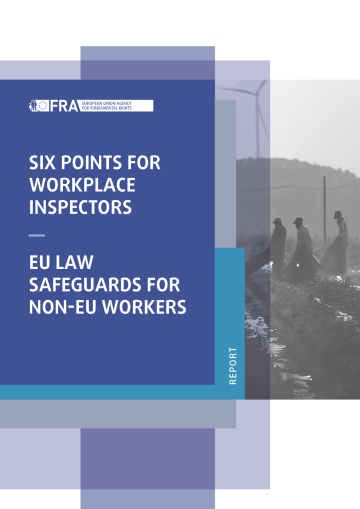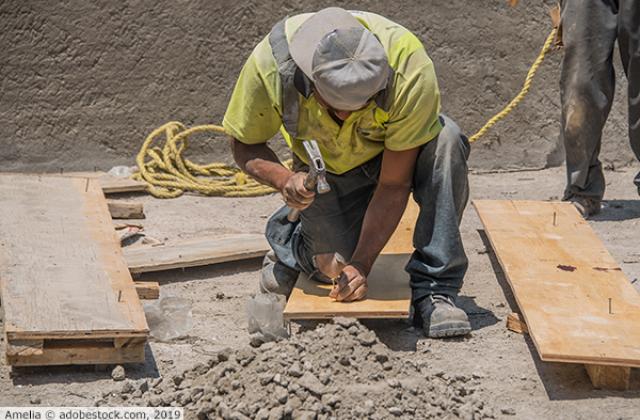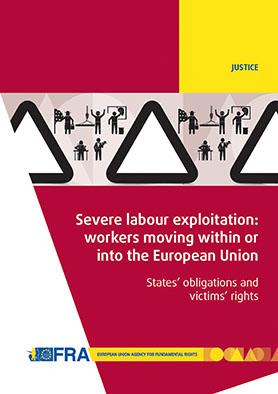Migrant workers are particularly vulnerable to labour exploitation and violations of European Union (EU) labour law. Workplace inspectors play a key role in overseeing the correct application of the safeguards enshrined in EU law.
EU law lays down safeguards to protect workers from non-EU countries (third countries) against employers’ abusive behaviour and to facilitate their access to justice. EU law provides different levels of protection to non-EU workers. The level varies depending on their residence status.
Under EU law, non-EU workers who are legally resident in an EU country must receive equal treatment. They must be treated the same as workers from the Member State where they are employed. Equal treatment covers many areas, including working conditions, pay, working time, and health and safety at work.
According to the International Labour Organisation’s Declaration on Fundamental Principles and Rights at Work, core labour rights apply to all workers, including workers in an irregular residence situation.
EU law rules protect all workers regardless of their nationality and residence status. For example, the safety and health of workers is protected under the framework directive on safety and health at work (89/391/EC).
Beyond the general EU law rules that apply to all workers, the following key EU law instruments provide specific safeguards for non-EU workers:
- the employer sanctions directive (2009/52/EC) for migrants in an irregular situation;
- the seasonal workers directive (2014/36/EU) for seasonal workers;
- the single permit directive (EU) 2024/1233 for regular workers. This directive has been recently revised and Member States have two years to transpose the new provisions;
- the reception conditions directive (EU) 2024/1346 for asylum applicants. This Directive has been recently revised and Member States must transpose it by June 2026;
- the posted workers directive (96/71/EC), as amended by directive (EU) 2018/957 for posted workers;
- the anti-trafficking directive (2011/36/EU), as amended by directive (EU) 2024/1712 for victims of human trafficking.
This report presents six points to help labour inspectors apply these EU law safeguards in practice:
- providing information;
- supporting access to justice and facilitating complaints;
- identifying labour exploitation;
- right to backpay and compensation;
- right to adequate housing;
- right to change employer.
This report is a summary of the forthcoming manual for workplace inspectors.
Workplace inspectors play an important role in upholding workers’ rights. Promising practices identified in this research include workplace inspectors communicating directly with migrant workers during inspections and building trust with them. A further promising practice is when workplace inspectors have the skills to identify signs of labour exploitation. This involves overcoming language barriers, for example, by using translated leaflets and adjusting their interactions with exploited workers who may have experienced trauma or intimidation.






